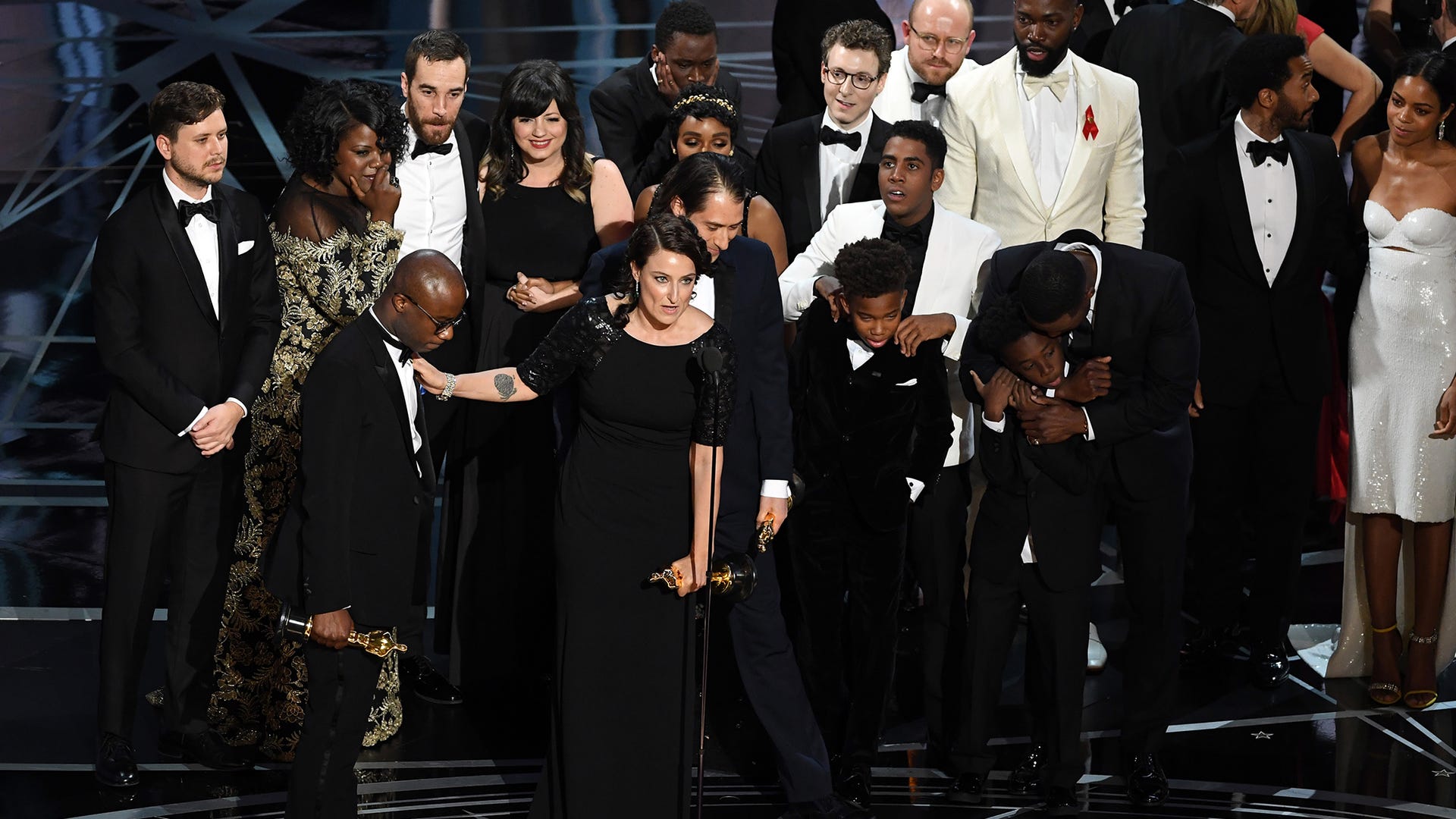Join or Sign In
Sign in to customize your TV listings
By joining TV Guide, you agree to our Terms of Use and acknowledge the data practices in our Privacy Policy.
Did the Academy Awards Really Overcome #OscarsSoWhite?
It's complicated
The Academy Awards had a huge task to undertake this year to overcome the #OscarsSoWhite controversy that circled the award show for the two previous ceremonies. While great strides were made in making the movies and performances honored by Hollywood's most prestigious award show more inclusive to people of color, have the Oscars really fixed their race problem?
The answer, naturally, is not so black and white.
The moment that everyone will be talking about from the 89th Academy Awards is the Best Picture announcement flub in which the cast and producers of La La Land -- a Hollywood love-letter musical that was largely criticized for its depiction of a white man mansplaining jazz -- were initially called to the stage, only to realize that Moonlight was actually the winner. The latter film is the story of a young black boy from the Liberty City neighborhood of Miami grappling with his sexual identity as he tries to rise above his circumstances. It was a shocking upset heard around the world.

Moonlight is the better film and it will be remembered as the rightful winner, despite the flub. Yet, it will be a sticking point that a movie starring black people, written by black people, directed by a black man and which earned the first editing Oscar nomination for a black female (Joi McMillion) temporarily had to share its golden moment with the problematic La La Land. Details are still emerging as to how the gaffe occurred, and even though it seems to be a mixup of the award envelopes rather than a practical joke or a purposeful slight, the moment will go down as the Oscars' version of #HiddenFences.
Check out all our Oscars coverage here
OK, so the flub wasn't great, but it was a production error rather than Academy screw-up. It means something that the Academy chose to recognize Moonlight as the Best Picture of the Year. It shows people listened when it was pointed out that films made by people of color and starring people of color don't get the same consideration that white films do. It means the hashtag worked, right?
The Academy took huge steps to begin rectifying its race problem by addressing its membership requirements. This year saw new rules about who could become voting members, but also took voting rights away from older members who had become inactive within the Hollywood community to try and reshape the race distribution of the Academy's voting body.
The changes not only benefited Moonlight, but led to nominations for Fences, Hidden Figuresand Loving, all of which are centered on characters of color. Those nominations led to two other wins for Moonlight, including Mahershala Ali in the Best Supporting Actor category. Viola Davis finally won her first Oscar for Best Supporting Actress in Fences as well. In one year, black people saw their representation in Oscar acting categories go from zero to winning half of the big four. That's huge.
Moonlight wins Best Picture in a crazy moment
So what's the problem? #OscarsSoWhite has made progress, but now it seems the awards are #OscarsSoBlackandWhite. It's great to see minorities on screen and for important stories like Moonlight getting recognized, but the hashtag was meant to be a movement for all people of color -- not just black people.
This year's Oscars still saw no nods for Latinx actors. There was zero representation for their community despite the fact that the Latino community makes up 38 percent of movie ticket buyers in the United States. Lion's Dev Patel was the sole Asian acting nominee (and he's actually British), so the acting, directing and writing fields still don't show a reflective view of our present society.
We return to the question at hand: Did the Academy Awards really overcome #OscarsSoWhite? No, but they made great strides towards creating a more inclusive Hollywood at the highest levels. There's still more done to create a cinema landscape that creates, and celebrates, the work of people of all colors. However, this year was a positive indicator of the change that's still to come and that Hollywood is willing to embrace the diversity that makes the world we live in a beautiful place.
